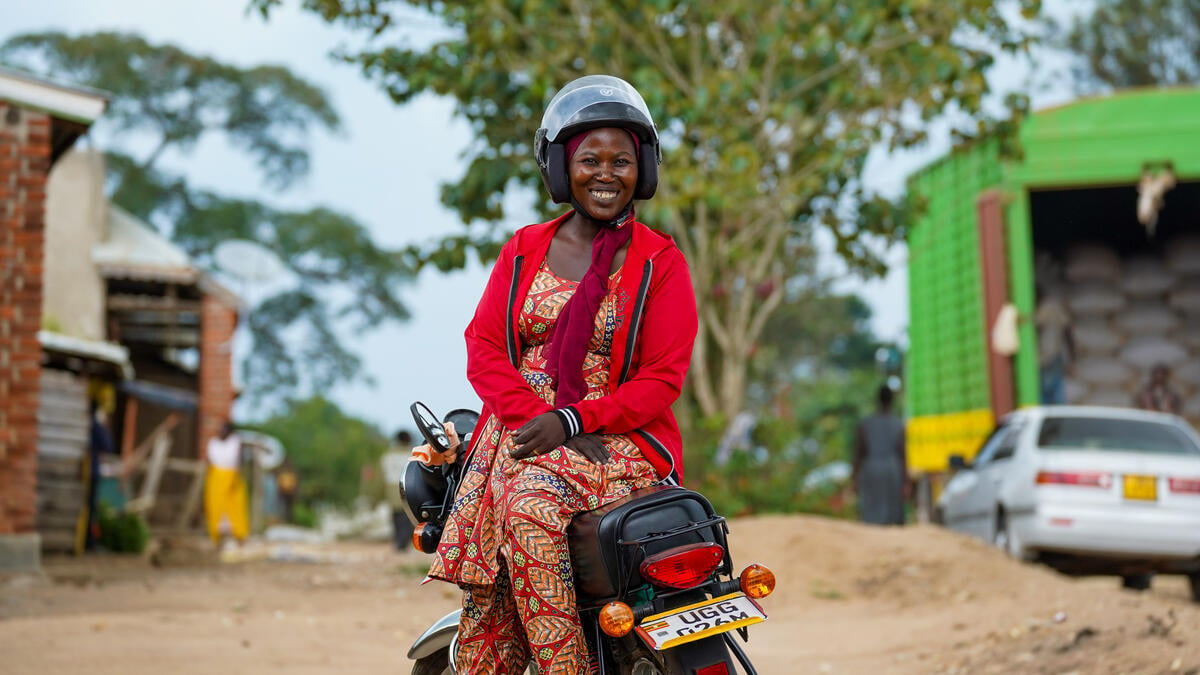Child's play with a serious message for teenagers in eastern Congo
Child's play with a serious message for teenagers in eastern Congo

MASISI TERRITORY, Democratic Republic of the Congo, November 13 (UNHCR) - Told that one of their teachers has made a pupil pregnant, a group of more than 50 secondary school students at a school in eastern Democratic Republic of the Congo (DRC) fall about laughing and shouting. It's not actually true - these children are taking part in participatory theatre at the Bustani Institute where they study - but it's a very plausible scenario.
"When we organize participatory theatre, it always has a link to reality and to a problem occurring in the school," says Mulira Muzee, who works for Search for Common Ground, a conflict prevention and resolution NGO. He adds that in today's exercise the imaginary student's pregnancy "will lead to problems between the wife of the teacher and the girl, but also between the girl and her parents, who are going to reject her. She will then be alone."
Alarmingly, it's a common enough situation in eastern DRC's North Kivu province, especially in Masisi Territory, a formerly lawless region where many of the young people taking part have been displaced in the past. The students have little problem picturing the dilemma, but this helps make the drama more relevant and effective in its goal of preventing sexual violence and exploitation of children in an area where the young are particularly vulnerable.
Search for Common Ground is conducting the participatory theatre classes in schools across Masisi as part of a larger UNHCR-led programme for the territory that also includes prevention of HIV/AIDS, and mass information on reproductive health. The results have been encouraging.
"The messages [against violence and exploitation] have helped us a lot. They have had a positive effect on the students and on the teachers," says Germain Wetewabo, director of the Bustani Institute, a secondary school for veterinary, mathematics and physics studies.
"There has been a growing awareness on the part of the teachers and the students that someone who behaves like this deserves punishment," she says, stressing that the exercise helped them understand the potential consequences.
Muzee agrees, adding that after taking part in the participatory theatre, "the students realize that they should not give themselves to teachers. It sticks in their mind." Fifteen-year-old student Clarisse* says the theatre "helps students in their daily life and they can also teach others who did not have the chance to see this play."
As part of the same programme, UNHCR and its NGO partner Belenfance help child survivors of abuses or exploitation who were unable to attend or continue school. Children of commercial sex workers have also been helped.

A senior staff member at a primary school that is taking part in the project said that some of the pupils, mostly orphans, had previously been employed in unsuitable trades, such as delivering alcohol to markets and bars. He said they had to work long hours and were at risk of being raped. They also had difficulties finding food.
Belenfance wants to send more than 130 children back to schools in Masisi Territory this year. Ninety-three of them have been sexually exploited and the rest are the children of commercial sex workers. Current funding means only 48 children have been enrolled so far, but UNHCR is looking for more support so that all those identified by the NGO can attend school.
The primary school official said that children wanted to enrol when they saw their friends attending. He added that last year, as a goodwill gesture, the school waived fees for the new students, many of whom would never have been able to afford the fees.
Belenfance also supports income-generation activities for parents of some of the children included in the scheme, so that they can provide for their family and enable their children to attend school. The programme includes support for livestock breeding, sewing and hairdressing.
The local NGO also organizes daily activities aimed at preventing sexual violence and exploitation of children, including sensitization campaigns in the four sites for internally displaced people in Masisi. Achille Rutebuka, a social worker with Belenfance, visits a different camp and shouts out awareness messages through his loudhailer.
"Girls and boys living in IDP sites are often forced to submit to sex simply to survive. Their parents can't do anything to prevent it because they are unable to provide for their children," says Rutebuka, while adding that programmes such as the one in Masisi are helping. "We can see a change with the advocacy done by UNHCR. It is palpable."
More than 900,000 people are still displaced throughout North Kivu province.
* Name changed for protection reasons
By Céline Schmitt in Masisi Territory, Democratic Republic of the Congo









